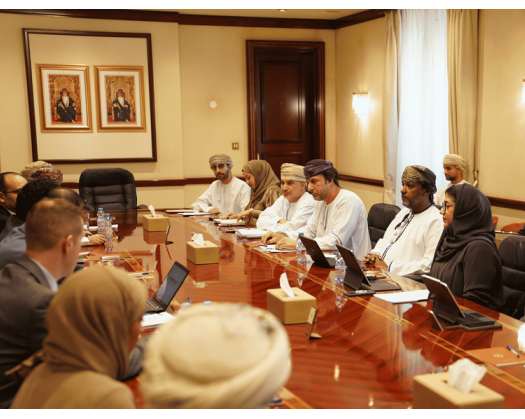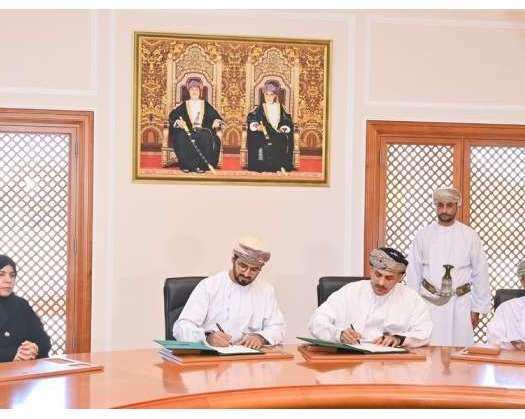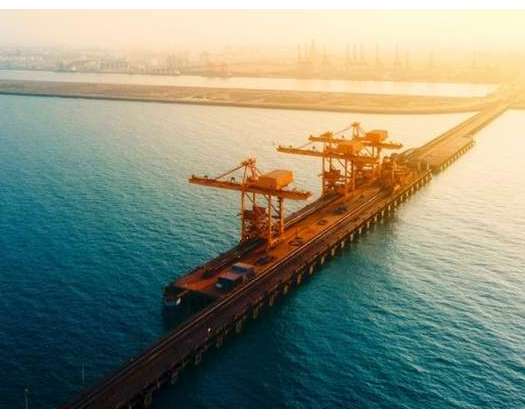Muscat: The International Monetary Fund (IMF) delegation concluded its visit to the Sultanate of Oman, which was part of the annual consultations mandated by Article IV of the IMF's agreement.
During their visit, the IMF experts lauded Oman's commendable economic and financial performance, the robust resilience of its banking sector, the enhancements observed in its external account, and the government's steadfast commitment to implementing structural reforms.
The delegation highlighted the sustained positive trajectory of Oman's economy. The real gross domestic product (GDP) experienced a growth rate of 1.9% in the first half of 2024, a significant increase from the previous year's growth rate of 1.2%. This acceleration in growth can be attributed to the continuous improvement in non-oil activities, which saw a notable increase from 1.8% in 2023 to 3.8% in the first half of 2024, propelled by the robust performance of the industrial, manufacturing, and service sectors.
The contraction in hydrocarbon activities was a result of voluntary production cuts under the OPEC+ agreement. Despite this, inflation remained under control, with rates dropping to 0.6% during the first nine months of 2024, a significant improvement from the previous year's rate of 0.9%. This reflects Oman's success in managing price levels effectively.
The IMF mission observed that the surpluses recorded in Oman's fiscal and current account balances continue to be robust. Additionally, the forecasts provided by the experts indicate a projected decline in the level of public debt, which is expected to bolster the credibility of the policies and programs implemented by the government of the Sultanate of Oman. This, in turn, has contributed to the recent upgrade of the Sultanate of Oman's sovereign credit rating to investment grade.
The economic outlook remains favorable, with growth projected to remain at 1.2% for 2024, despite the extension of OPEC+ oil production cuts. The IMF experts anticipate an improvement in economic growth in the early part of 2025, supported by increased oil production and sustained growth in both oil and non-oil activities. Despite potential challenges posed by volatile oil prices, global economic slowdowns, and geopolitical tensions, as reported by the IMF, the experts' forecasts suggest that Oman will maintain fiscal and current account surpluses over the medium term.
The mission commended the government's efforts to enhance fiscal management, maintain fiscal discipline, and strengthen social safety nets. The non-oil primary deficit is expected to remain stable as a percentage of non-oil GDP in 2024, compared to the previous year's rate of 29%. The experts underscored the importance of continuing fiscal reforms to ensure financial sustainability and inter-generational equity.
The necessity to augment non-oil revenues was underscored as a critical step towards reallocating resources towards investments that support economic growth and the advancement of Oman's diversification strategies. The experts further advocated for the improvement of the medium-term institutional framework for public finances, encompassing integrated financial planning, the implementation of fiscal rules, and the establishment of a comprehensive framework for the management of sovereign assets and liabilities.
The experts reiterated their confidence in the fixed exchange rate regime, maintained by the Central Bank of Oman, as a reliable and appropriate monetary policy framework. They expressed their appreciation for the advancements made in the Central Bank's "Monetary Policy Efficiency Enhancement Project," which seeks to fortify the tools of monetary policy. Additionally, the banking sector of the Sultanate of Oman was lauded for its resilience, with bank profitability returning to pre-pandemic levels and asset quality sustained. The experts recommended the further development of financial markets, the expansion of the institutional investor base, and the utilization of digital transformation to broaden financing opportunities and bolster economic diversification efforts.
The IMF mission acknowledged the Sultanate of Oman's sustained structural reforms in line with Oman Vision 2040, which include the enhancement of the Social Protection system, labor market reforms, initiatives to improve the market environment, attract foreign investments, and support small and medium-sized enterprises (SMEs). The mission also recognized the efforts to reform state-owned enterprises, increase renewable energy production to reduce electricity generation costs, and support the green hydrogen economy. Furthermore, the government's progress in advancing its digital transformation agenda was highly commendable.












